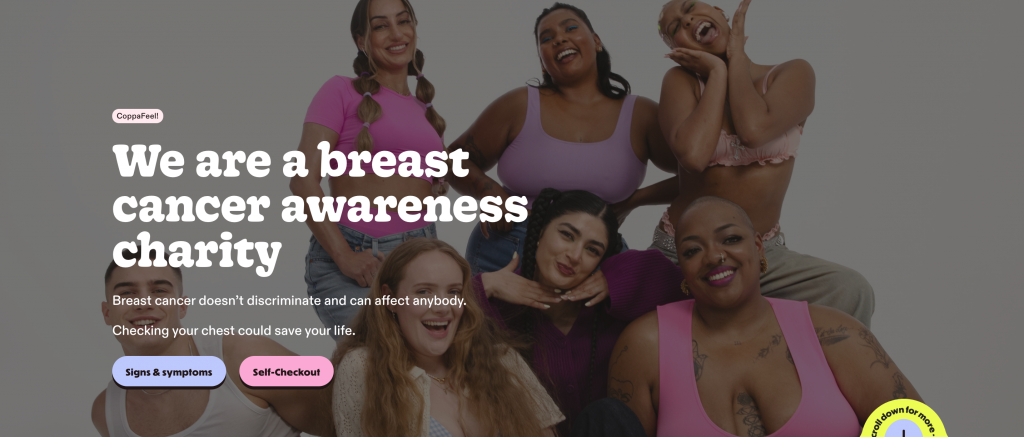April Digital Update – the latest changes in social, brand, and web
3rd May 2024

The digital landscape is evolving rapidly, with major platforms and companies continually adapting their products and strategies. In this blog, we’ll explore the latest developments impacting social media, brand marketing, and web.
Whether you’re a marketer, entrepreneur, or simply someone deeply engaged with online platforms – staying informed about these pivotal shifts is crucial. This blog aims to unpack the key updates, providing context around their significance and analysing the potential ramifications and strategic considerations for various stakeholders.
Social
LinkedIn Adopts AI for Post Writing
LinkedIn has launched a new AI-powered writing tool that allows Premium subscribers to generate draft posts based on their initial thoughts and ideas. Users input, a minimum of 20 words, about the topic they want to cover, and the AI will transform that into a draft post. LinkedIn stresses that users should review and edit the AI-generated content before posting to ensure it reflects their authentic voice and expertise.
The tool is designed to help jumpstart the writing process, not replace human authorship entirely. LinkedIn provides tips like being detailed in your initial input, only using it for drafting LinkedIn posts (not other tasks), and actively reviewing/editing before sharing.
LinkedIn Tests TikTok-Style Video Feed
Following the trends of other apps like Instagram and YouTube – LinkedIn is experimenting with a TikTok-like vertical video feed. The feed, currently in beta, appears under a new “Video” tab and displays short, scrollable videos that users can like, comment on, and reshare.
LinkedIn says users are seeking more video content for learning/development purposes. The feed could provide a new way for influencers, coaches, and creators to share educational videos aligning with LinkedIn’s professional content focus.
However, LinkedIn has faced challenges in making other features like Stories stick in the past. So, only time will tell if this works out for the better or will be removed in the end.
TikTok’s Ownership Hangs in the Balance

TikTok’s future in the U.S. remains clouded after President Biden signed a bill giving its Chinese parent company ByteDance 270 days to sell the viral video app to an American entity – or face a nationwide ban.
The legislation aims to safeguard against potential risks from Beijing’s ability to access American user data and influence content moderation on the rapidly growing platform. TikTok has pushed back, threatening legal action and warning a ban would “devastate” U.S. businesses and creators.
As the divestment deadline looms, industry speculation has swirled around potential buyers like Amazon, Apple, and Oracle acquiring TikTok’s U.S. operations. Each brings unique strengths but notable complications around sustaining TikTok’s success and appeasing national security concerns.
ByteDance reportedly prefers an acquisition involving non-tech partners akin to the scuttled 2020 Oracle/Walmart deal. Such a structure could better insulate TikTok’s product and community.
Marketers seem relatively unfazed for now, viewing TikTok as still experimental for ad spend that could shift to other channels if needed. Small businesses leveraging their organic marketing may face bigger disruption rebuilding elsewhere.
Ultimately, TikTok’s distinctive blend of viral content distribution, authentic influencers, and evolving social commerce makes preserving its essence post-acquisition crucial for brands and creators deeply invested in the platform’s value proposition. All eyes are on ByteDance securing a deal that compromises with government requirements yet keeps TikTok’s magic intact.
Brand
CoppaFeel! Charity Unveils Rebrand for Youth Resonance

The breast cancer awareness charity CoppaFeel! revealed a full brand refresh aimed at better connecting with younger audiences. Based on research with 18-24-year-olds in the UK, the new branding includes a modernised logo, vibrant colour palette, more inclusive imagery, and expanded iconography representing diverse chest areas.
While embracing a fresh new look, CoppaFeel! maintains its core mission of promoting early detection through initiating conversations about breast cancer with youth. The charity hopes the rebrand will make its messaging more accessible and representative of the communities it serves.
A24 Faces Backlash for Using AI-Generated Imagery
Entertainment company A24 sparked controversy by using AI-generated images to promote the new dystopian film “Civil War” on Instagram. The AI-edited images depict iconic American locations like the Las Vegas Strip and Washington Square Park in the midst of warfare scenarios not actually featured in the movie.



Many criticised A24’s use of unsubstantiated AI imagery to advertise the film, especially given the current debate around regulating AI’s role in media. Some experts argued that A24 failed to properly disclose its use of AI and called the campaign a “misstep” that highlights the need for transparency around AI-generated creative content in advertising.
Web
Google Search Update to Address Spam and Low-Quality Results
Google announced several changes in March 2024 aimed at improving search quality and reducing spam/low-quality content:
- Improved ranking algorithms to better identify and demote unhelpful, unoriginal content created primarily to game search rankings rather than provide value to users. This includes sites created just to match very specific queries.
- New/updated spam policies to take more aggressive action against certain abusive behaviours:
- Scaled content abuse: Mass producing low-quality/unoriginal content through automation, human efforts, or a combination to manipulate rankings.
- Site reputation abuse: Low-value third-party content on reputable sites aimed at benefiting from the site’s ranking ability.
- Expired domain abuse: Repurposing expired domains with low-quality content to boost its search rankings.
Google expects these collective efforts will reduce low-quality, unoriginal content in search results by around 45%.
Delay of Third-Party Cookie Removal in Chrome
Google has once again postponed its plan to phase out support for third-party cookies in the Chrome browser until 2025, subject to regulatory approval. Key points:
- The move gives businesses more time to prepare alternative user-tracking methods before cookies are removed.
- Google cited ongoing challenges in addressing diverging feedback from the industry, developers, and regulators as reasons for the delay.
- It must wait for approval from UK’s Competition and Markets Authority (CMA) and Information Commissioner’s Office (ICO) on its Privacy Sandbox technologies before proceeding.
- Once approved, Google must allow 60-180 days before cookies can be deprecated in Chrome per the CMA’s rules.
- The delay underscores Google’s difficult position balancing ad industry interests with increasing privacy regulations as the world’s dominant browser and search advertising provider.
Final Thoughts
The concurrent developments we’ve covered – spanning social networks testing new content formats, brands revamping their identities, search engines fortifying quality gatekeepers, and browsers rethinking privacy paradigms – vividly illustrate the rapidly evolving digital frontier.
For brands and marketers, it’s a powerful reminder of the importance of remaining agile and adapting strategies to ensure effective audience engagement across dynamic platform environments. The rise of AI-powered tools demands renewed focus on authenticity while new content formats open creative opportunities to experiment.
Consumers, too, must stay vigilant about transparency from platforms, ensuring their privacy and access to trustworthy information isn’t compromised amid the competing interests of tech behemoths and regulatory bodies.
And for the web’s open framework, the tension between data privacy/security and digital ad economy interests will likely intensify as industry heavyweights jockey to shape a new equilibrium following third-party cookie deprecation.



